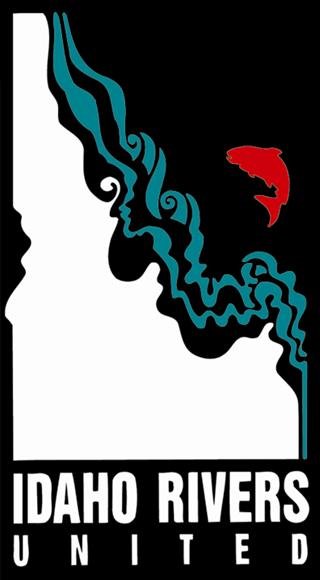Lewiston Tribune editorial: Will Idaho's lame duck governor extend his reach?
In an editorial published this morning, the Lewiston Tribune urged Idaho Gov. C.L. "Butch" Otter not to tie the hands of Idaho's future elected leaders during the waning hours of his administration with regard to management to endangered salmon. The editorial follows a June 4 letter sent by IRU and allied groups to the governor urging him not to take such an action.
Read below for the Lewiston Tribune's opinion.
By Marty Trillhaase
A decade ago, Idaho agreed to back the federal government's fish recovery efforts along the lower Snake River.
Idaho was hardly the only party to sign the so-called fish accords. Along with the states of Washington and Montana as well as the Confederated Tribes of the Umatilla Indian Reservation, the Confederated tribes of the Warm Springs Reservation, the Confederated Tribes and Bands of the Yakama Nation and the Confederated Tribes of the Colville Reservation, the Gem State agreed not to challenge the federal government's salmon and steelhead recovery plans in court - in exchange for millions of dollars to run hatcheries, restore streams and improve fish passage screens and spillway weirs on some dams.
The state of Oregon and the Nez Perce Tribe did not sign and continued litigation with the federal government.
In the 10 years since, the landscape has changed.
The federal courts have repeatedly declared the dam community's fish recovery plans inadequate to meet Endangered Species Act requirements. A fifth plan, ordered by the third judge in the case, is under way. So is an environmental impact statement that may weigh in on whether the benefits of four dams on the lower Snake River merit the costs.
Fish numbers are plummeting. Last year, 4,108 wild spring/summer chinook had returned to the Snake River, a drop from 21,000 two years earlier. Steelhead runs fell to 12,981 in 2017-18, about a third of the 2015 run.
Navigation along the Snake River has shriveled to the point that - as the Tribune's Elaine Williams reported last month - the Port of Lewiston relies on other enterprises to provide 94 percent of its $1.61 million budget.
The Pacific Northwest is so awash in surplus electricity - due to low natural gas prices and renewables - that the Bonneville Power Administration is selling hydropower at a loss. As columnist Randy Stapilus noted on this page earlier this month, BPA's reserves have dropped from $1 billion a decade ago to about $5 million now.
Even the political environment in the Evergreen State appears to be in flux. Congresswoman Cathy McMorris Rodgers' bill to stymie U.S. District Judge Michael Simon's increased spill order split the state's congressional delegation along partisan and geographical lines - and generated opposition from Sen. Patty Murray in the process.
The fish accords expire on Sept. 30, and a group of Idaho conservation groups fears Gov. C.L. "Butch" Otter will extend the state's commitment for another three to five years.
"To prevent extinction of Idaho salmon, Idaho's next governor may have to: challenge federal agencies in public, advocate stronger federal action in hydro or harvest management downstream, insist that public salmon funds be spent more wisely and effectively than federal agencies are doing now, or go to court," environmental activists, including the Idaho Conservation League and Idaho Rivers United, wrote.
If Otter is contemplating such a step, that's rather presumptuous on his part. He walks out of the governor's office on Jan. 1, 2019.
Between then and now, Idahoans may wind up debating the choice between dams and fish as a focus of the contest between Republican Brad Little and Democrat Paulette Jordan to succeed Otter.
Who knows? Maybe fish recovery becomes for the 2018 race what the Boulder-White Clouds became to the 1970 race for Idaho governor - a game-altering issue.
In any event, why would Idaho voters want a lame duck governor precluding them from making that call?
Should Jordan become the first Democratic Idaho governor in 24 years, you might expect a shift in policy.
But even a continuation of Republican rule under Little will involve change. He will bring his own team and his perspective - possibly tempered by what voters tell him during the campaign - to fish management.
Why would Little want to be bound by a contract signed in the waning days of his predecessor's administration?
Extending Idaho's fish contract with feds into the term of Otter's successor rests on one of two conclusions:
Either Otter has no faith in the voters.
Or he doesn't trust Little. - M.T.


